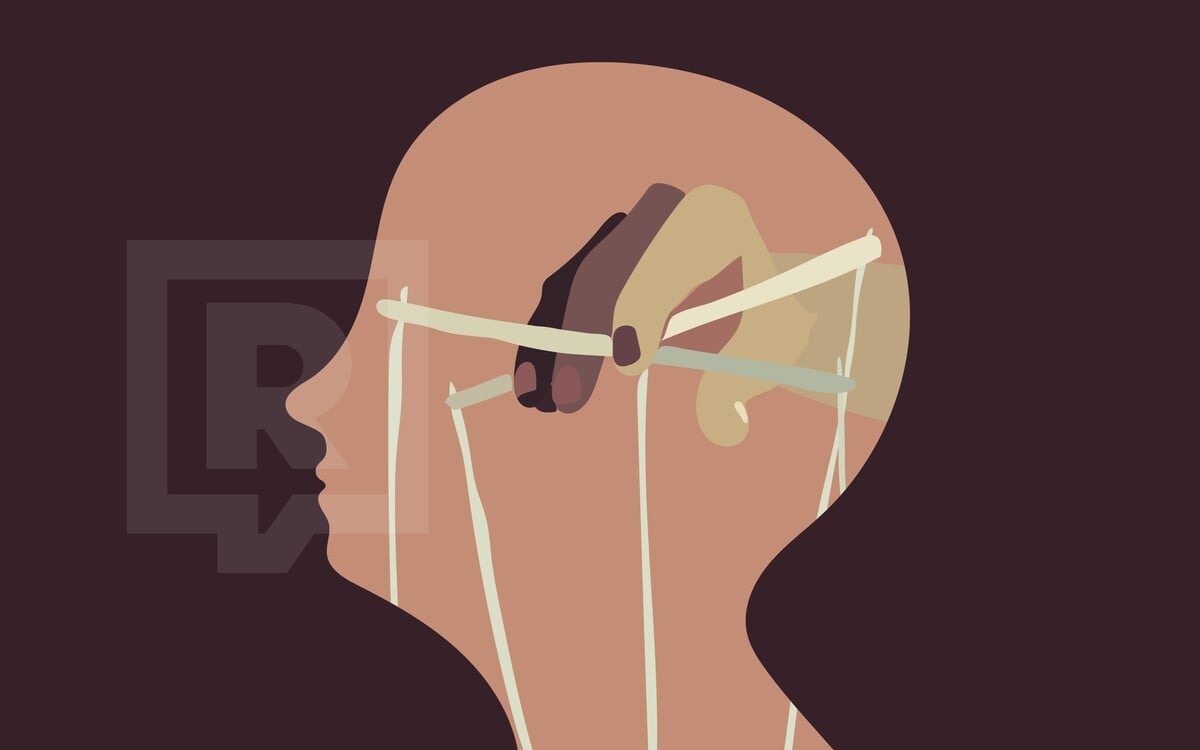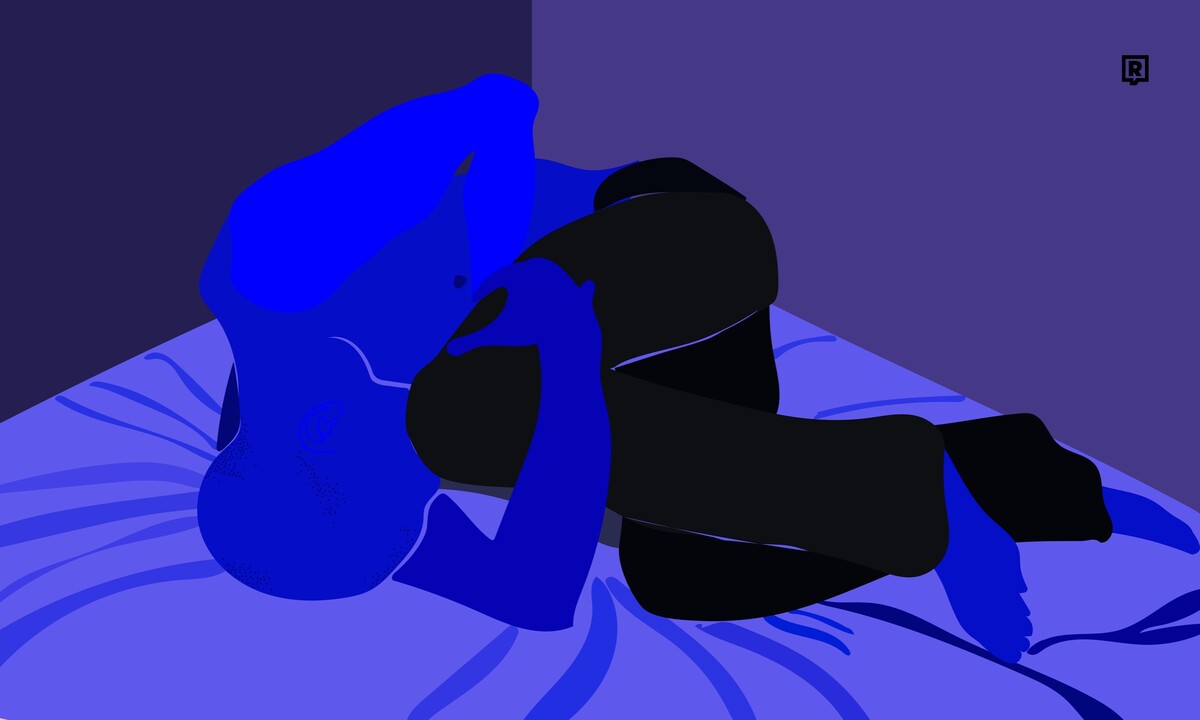 Ozempic can cause vision loss. A new study has shown a link between the drug and eye problems
Ozempic can cause vision loss. A new study has shown a link between the drug and eye problems
Ozempic can cause vision loss. A new study has shown a link between the drug and eye problems
Ozempic can cause vision loss. A new study has shown a link between the drug and eye problems
Gaslighting: How To Notice When Your Partner Is Manipulating You
Gaslighting progresses through the relationship much like when a spider is spinning a web.
If problems persis, please contact administrator.

Please don't be hysterical, because none of what you say happened. I would never do that. You are so sensitive. Don't exaggerate. You're crazy. You are paranoid. Please, it was just a joke. That's not how I said it. You have to train your memory, you forget a lot. You should see a psychiatrist, kid. You're twisting everything. Do you know how crazy you sound right now? Nobody will believe you.
Do you recognize a pattern in these sentences? Do you hear them in your relationship on a daily basis? Do they tell you that you didn't really see, what you saw ? That they didn't really do, what they did? That you didn't really feel, what you felt? Then you may be experiencing gaslighting.
Gaslighting is a subtle technique of manipulation, the goal of which is to gain full control over someone else's life. It gradually (and often in the long term) undermines the victim's confidence in their own ability to distinguish truth from lies, good from evil, or fact from imagination. The victim feels "crazy". Gaslighters manipulate their reality and victims become unknowingly pathologically dependent on them.
According to experts, this form of manipulation has its roots in social inequalities and occurs especially in power-laden intimate relationships. Although the victim can be male or female, gaslighting is often gendered and places men in a superior position.

Gaslighting = a stealthy and invisible form of domestic violence
According to Branislava Marvánová Vargová, head of the professional social counseling service of the organization ROSA - Center for Women, this is a complex of psychological, manipulative and emotional violence, where the perpetrator aims to create and maintain control and power. It is also characterized by the fact that it is inconspicuous and "invisible" - it does not cause bruises. “Gaslighting is meant to unsettle you. Suddenly, you're not quite sure if you can trust what you're feeling, how you're feeling. An abuser puts you in a state where you can't support yourself. He will force you to depend on him," she describes in an interview for Refresher.
According to her, it happens gradually: "The abuser starts saying that you don't deserve the job you have. That you won't graduate. Gradually, the victim can hear 'you can't do without me', 'you can't take care of the children', 'you can't find a job', 'you're unstable', 'you have to stay with them, there's nothing else left for you'."
Gaslighting is intangible. When someone yells at you or locks you in the house, you can name it more easily. It's not the same as someone questioning your reality, you, your mental health, or your capacity to handle everyday things.
The uncertainty of the victim is an integral part of most cases of psychological violence, according to Nadi Gubová, head of social services at the center for victims of domestic and sexual violence proFem. "A violent person often blames the victim for their behavior. 'You provoked me...', 'If you hadn't behaved like that...' - these are the explicit cases. But often it's even more subtle: 'I like you so much, and when I see you with another man, I can't help myself...' Then the victim accepts the blame for the actions of his partner and is already in a vicious circle from which it is difficult to escape," explains Gubová.
According to her, gaslighting is often a part of domestic violence. She explains that sometimes it is explicit psychological violence, when the violent person uses formulations such as: "You are useless, you are nothing, you have not achieved anything" towards the victim. However, it also includes hidden manipulation and subtly instilling the idea that everything is the victim's fault.
We often encounter the fact that an unfaithful partner hides completely clear facts. "No, that's not true, you're making it up" or "I never said that, it was different..."
According to Marvánová Vargová, domestic violence in a relationship develops gradually, physical violence is usually preceded by psychological and emotional violence or isolation. And it is through gaslighting that a violent person can create ground for other forms of domestic violence.
Slow manipulation and quick gain of control
Gaslighting tends to permeate a relationship gradually. You may not even notice it at first. However, it will eventually occupy your thoughts and overwhelm your feelings. As the American psychoanalyst Robin Stern states in the publication The Gaslighting Effect, a person who is under the long-term influence of gaslighting is hopeless and joyless, unable to even remember the person they once were.
Expert Gubová from proFEM shares the same opinion: "Before the victim finds out what is going on in the relationship (if she can do it herself), her self-esteem is usually so low that she even doubts whether what she recognises could be actually true." This is not a slap, which we all know is bad. The behaviour of a person who commits gaslighting can be very insidious and escalate gradually.
If you throw a frog into cold water and gradually increase the temperature, it will not notice anything and will eventually cook. But if you throw it straight into boiling water, it will jump up. It's similar with gaslighting.
To make the issue easier to grasp, organizations helping victims of domestic violence named the basic "tactics" of gaslighters. However, according to Marvánová Vargová, it is not possible to universally describe how gaslighting begins in all cases. "It is not a scale from one to two to three. Violence in a relationship really develops very slowly, it often begins with situations and behavior that at first glance may seem completely non-violent," she emphasises.
1. Guilt
This tactic consists in the other person convincing you that you are to blame for something that happened. For example, an unfaithful partner may say that it is your fault that they had to cheat on you. You should have tried harder - otherwise he wouldn't have had to cheat at all.
"The aggressor does not accept responsibility for his behavior, he blames the victim for the consequences. He tells her that she has herself to blame: 'Look what you've made of me. I wouldn't normally behave like this, but you are so terrible that I can't help myself.' The victim can then internalize these accusations - accept them as their own," Marvánová Vargová describes.
In this case, according to Gubová, the course of the violent person's former relationships can also be a warning signal. "According to the manipulator, the ex-partners were 'completely stupid', they distorted everything, they made everything up. And the same thing happens in the current relationship. According to the manipulator, the fault is never on his side, but on the side of the victim - who doesn't remember anything, is completely out of it," she adds.
2. Distorting reality
By hiding or misrepresenting information, abusers gain control. They lie very obviously, but also very subtly. They may claim that what the victim witnessed did not actually happen at all. They try to make her feel like she can't rely on her mind and memory - but not on tangible evidence either. "You're acting like a fool. It's all in your head," the victim often hears. At the same time, the abuser can, for example, hide and move various objects to increase the insecurity even more.
Therefore, according to Marvánová Vargová, one of the consequences is also internal withdrawal and isolation: "A woman is suddenly not sure if what she thinks happened, really happened - and that no one will question it. She withdraws and does not talk about his problem with anyone, she is ashamed."
Some clients come to us with the fact that their partner has already openly told them that "he's going to put them in an asylum anyway".
3. Lying
According to On Record, gaslighters are pathological liars who won't budge when you confront them with evidence. They continue to lie and their denials can be very convincing. For example, they may answer a question with a question, turn the situation against the victim and vehemently claim that "nothing like this has ever happened".
"For example, the manipulator blames his partner for arriving home at 5, even though they agreed on 4. But they didn't really talk about anything like that. At that, guilt starts to pile up: "You don't even care what we talk about anymore. You don't pay attention at all when I tell you something,' " Marvánová Vargová adds, noting that all gaslighting tactics are interconnected.
By lying, the aggressor forces the victim to question their reality, and even to begin to believe the lies, despite knowing their untruth. Marvánová Vargová therefore recommends victims to keep a diary so that they can always confirm the truth. A safe place where the victim can record everything is, for example, the Bright Sky application, which was created in cooperation between the organization ROSA - a center for women, the Vodafone Foundation and the police. In addition to recording text notes, the user can also make audio or video recordings. The recordings are not saved directly to the phone, so no one can access them without a password.
4. Isolation
The manipulator isolates his partner from the outside world in order to gain full control over her life. So that someone wouldn't notice that something was wrong - so that someone wouldn't point it out to her, so that someone wouldn't help her. Another motivation for isolation can be morbid jealousy.
A controlling partner cuts you off from friends and family or forces you to limit contact with them. Suddenly you lose your support system. “ The abuser can also often influence the victim's friends and family. He tells them, for example: 'I don't know what to do with her anymore. She can't remember anything anymore and I'm worried about her. I'll probably have to take her to a psychiatric hospital.' "
5. Love as an apology
Some of the aggressors justify their behavior with "love". "Gaslighting is often associated with the fact that it goes hand in hand with shouting or coercion. But it can be the other way around – control can be disguised even in kind words. For example: 'I care about you, I want to take care of you. Honey, you're really crazy, I have to take care of you. You can't go anywhere alone anymore, it would be dangerous for you. You don't even know where we parked,' ” Marvánová Vargová explains.
This technique is associated with the effort to induce remorse. Typically, these are sentences such as: "You don't respect me, while I do everything thing for you" or "No one will take care of you like I do. You wouldn't be worth it to anyone else."
Through this manipulation technique, the victim can internalize that her partner actually means well for her. According to Gubová, this path is actually "non-violent" and the victim gradually submits and does not fight back, because she is often not aware of what she is becoming a victim of.
Is gaslighting grounds for a breakup?
Every person is different, so relationships are also different. According to Gubová, it is not possible to say whether gaslighting is a definite reason for separation or divorce - there are several factors at play. "A lot depends on whether the person doing the gaslighting can recognize it and do something about it. It depends on their motivation. I can say for our organization that we do not tolerate any form of violence and it is a reason for us to end the relationship. But many of our clients could have a different opinion, and we respect that," she says, adding that there are also abusers who may not act consciously. "I believe that if you grow up in an environment where this kind of behaviour is common, it can lead to a pattern being passed down, and you don't do it intentionally, you do it, because that's what you learned," she adds.

Even Marvánová Vargová admits this. However, she points out that even if a person commits gaslighting unconsciously, there is little chance that they will want to change their behaviour. Because it brings him control, and that's what he craves. If the abused woman decides to leave the relationship, she should have everything well planned - where she will go, what she will take with her, what she will tell the children, etc. According to Marvánová Vargová, leaving is the most risky period in terms of escalation of violence. Therefore, she recommends that victims do not tell their abusive partner in advance about their decision to leave.
It is important to realize that a relationship with an aggressor and a breakup with an aggressor is not the same as a normal relationship and breakup. You cannot agree on a breakup with the aggressor. He just won't let you go.
Gaslighting as such is not a crime, and at the same time it is very difficult to prove. However, as both experts point out, it is not a behavior that appears independently in a relationship. It is often accompanied by physical violence.
The victim does not have to stay alone in the situation, she can contact women's centres and organisations that help victims of domestic violence for support.
If problems persis, please contact administrator.















